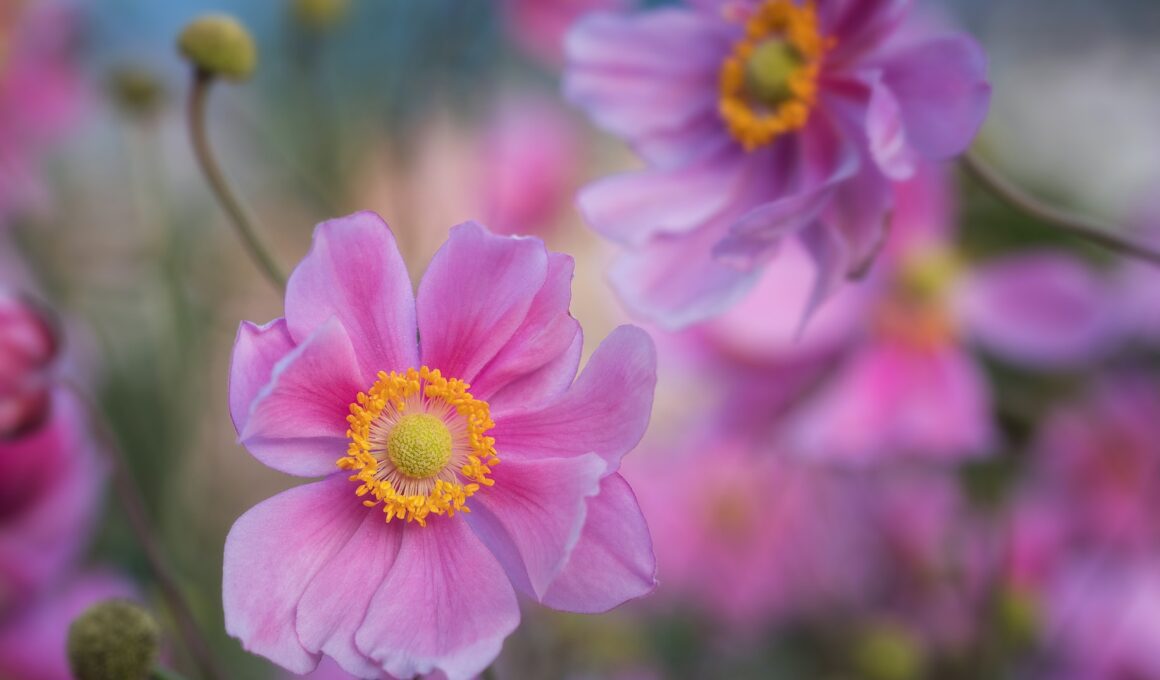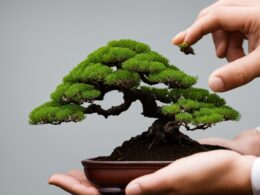Do you love growing cosmos in your garden? These popular flowering plants are a favorite among gardeners for their bright and colorful blooms. But have you ever wondered if slugs might be feasting on your beloved cosmos? Unfortunately, the answer is yes.
Slugs are a common garden pest that can cause extensive damage to plants, including cosmos. These slimy creatures are known for their voracious appetites and can quickly devour entire plants if left unchecked.
But don’t worry, there are steps you can take to protect your cosmos from these pesky pests and keep your garden slug-free. In this article, we’ll explore the relationship between slugs and cosmos, discuss the signs of slug damage on your plants, and provide tips for keeping your garden slug-free.
So, let’s dive in and learn how to keep your precious cosmos safe from slugs.
Cosmos: A Popular Flowering Plant
You can’t help but admire the vibrant colors and delicate petals of cosmos, making it a beloved choice for gardens and floral arrangements alike. Growing cosmos is relatively easy, even for beginners. These plants thrive in full sun and prefer well-draining soil. Cosmos can grow up to four feet tall, so be sure to give them plenty of space to spread out.
To keep your cosmos happy and healthy, there are a few tips and tricks to keep in mind. Deadheading – removing spent blooms – encourages your cosmos to produce more flowers. If your plants become too tall and leggy, pinch off the top few inches to promote bushier growth. Cosmos also benefit from regular fertilization, so consider adding a balanced fertilizer every few weeks.
If you want to attract beneficial insects to your garden, consider planting cosmos alongside other companion plants. Marigolds, zinnias, and sunflowers are all great choices. Not only do these plants attract pollinators, but they also help to repel harmful insects like aphids. By planting a mix of flowers, you can create a diverse and thriving ecosystem in your garden.
Understanding Slugs
Understanding slugs is crucial if you want to keep your garden healthy and thriving. These slimy creatures are common garden pests that can cause serious damage to your plants.
Slugs are mollusks that thrive in moist environments and feed on a variety of plant species, including flowers like cosmos. Preventing infestations is the first step to keeping your garden slug-free.
One way to do this is to maintain a clean garden by regularly removing debris and fallen leaves. Slugs love to hide in dark, damp places, so make sure to keep your garden well-lit and dry. Another effective method is to introduce natural predators, like birds and ground beetles, into your garden.
While slugs can be a nuisance, they also play an important role in the ecosystem by breaking down organic matter and aerating the soil. So, instead of resorting to harmful pesticides, try to find a balance between keeping your garden healthy and preserving the natural environment.
With a little bit of effort and some good gardening practices, you can enjoy a beautiful, slug-free garden all season long.
Do Slugs Eat Lupins Like They Eat Cosmos?
Slugs and lupins feeding habits differ considerably. While slugs are known to voraciously devour cosmos plants, they tend to avoid lupins due to their toxic compounds. Slugs have a preference for tender, juicy foliage, making cosmos a delicious feast for them. However, the lupins’ bitter taste and unappetizing chemicals act as natural deterrents against slug attacks.
Signs of Slug Damage on Cosmos
If you’re wondering how to tell if slugs have been eating your cosmos, there are three signs you should look out for. The first is holes in the leaves of your plants. Slugs love to munch on tender green leaves, and their sharp teeth can leave behind telltale bite marks.
Another sign of slug damage is chewed flowers. If you notice that your cosmos blooms are looking ragged or half-eaten, slugs may be to blame.
Finally, keep an eye out for slime trails on your plants or on the ground around them. Slugs leave behind a slimy residue as they move, so if you see these shiny trails, it’s a good indication that slugs are present.
Holes in Leaves
The telltale signs of holes in leaves are a clear indication of a potential pest problem. If you notice small, round holes in your cosmos leaves, then slugs may be the culprits. Slugs love to feast on the leaves of cosmos, and their feeding habits can leave your plants looking unsightly and weak.
To identify slug damage on your cosmos, look for holes that are evenly spaced and located near the edge of the leaves. You may also notice a slimy trail on the leaves or soil, indicating that slugs have been present.
Luckily, there are natural remedies you can try to get rid of these pests. You can handpick the slugs and remove them from your plants, or you can create a barrier around your cosmos using materials like crushed eggshells or diatomaceous earth. These materials can create an uncomfortable surface for slugs to crawl across, deterring them from your plants.
Chewed Flowers
You may have noticed some chewed flowers on your cosmos, and you might be wondering what could be causing this. Well, the answer is quite simple.
Slugs love to eat flowers, and cosmos are no exception. Slugs are nocturnal creatures, so they usually come out at night to feed on your plants. If you have noticed chewed flowers, it is a sure sign that you have a slug infestation in your garden.
But don’t worry, there are ways to prevent this from happening in the future. One way is to create a barrier around your plants using materials such as copper tape or eggshells. Slugs don’t like to cross over these materials, so they will stay away from your plants.
Another way is to use natural remedies, such as beer traps or diatomaceous earth. These remedies will not harm the slugs, but they will deter them from eating your plants. By taking these preventive measures, you can enjoy beautiful, healthy cosmos without the worry of slug damage.
Slime Trails
You may have noticed that the flowers in your garden have been chewed on by some critter, but have you seen any slime trails? Slime trails are the telltale sign of slugs, who leave behind a shiny, viscous trail as they move around your garden.
While it may not be the most pleasant sight, these slime trails actually serve an important purpose. Slime trail benefits include providing a lubricated surface for slugs to move on, reducing friction and allowing them to travel more efficiently. Additionally, the slime helps to protect slugs from dehydration and predators, as well as aiding in reproduction.
While slugs may not be the most popular garden inhabitants, they do play an important role as decomposers, breaking down organic matter and returning nutrients to the soil. So, while their slime trails may not be the most appealing thing to look at, they do serve an important purpose in the ecosystem.
Imagine a slimy, shiny trail on the ground, glistening in the sunlight. Picture a slug moving effortlessly along the trail, leaving a trail of slime behind it. Think about how the slime protects the slug from danger and helps it to survive in its environment.
Protecting Your Cosmos from Slugs
Protecting your cosmos from slugs is essential if you want to keep your garden looking beautiful. Slugs are notorious for their love of plants, especially the tender leaves and flowers of cosmos. If left unchecked, slugs can quickly decimate your garden and leave you with nothing to show for all your hard work. Fortunately, there are many natural remedies and chemical solutions that can help you keep slugs away from your cosmos.
One effective way to protect your cosmos from slugs is to use natural remedies. For example, you can create a barrier around your plants using materials such as copper tape or diatomaceous earth. These substances are abrasive to slugs, making it difficult for them to crawl over and reach your cosmos. You can also use natural predators such as ducks, chickens, or frogs to keep slugs under control. Another option is to use beer traps, which attract slugs and then drown them.
If natural remedies aren’t enough, there are also chemical solutions that can help you keep slugs away from your cosmos. For example, you can use slug pellets or sprays that contain metaldehyde or iron phosphate. These chemicals are toxic to slugs and can kill them quickly. However, it’s important to use these products carefully and follow the instructions on the label to avoid harming other wildlife in your garden.
In summary, protecting your cosmos from slugs is essential if you want to keep your garden looking beautiful. There are many natural remedies and chemical solutions available to help you keep slugs under control. By using these methods, you can ensure that your cosmos stay healthy and vibrant, and you can enjoy the beauty of your garden for years to come.
Keeping Your Garden Slug-Free
To keep your garden slug-free, you need to perform regular maintenance tasks. This includes removing any debris or hiding places that slugs might use as shelter.
Companion planting is another effective technique to reduce slug damage, as certain plants can repel or distract them.
Finally, consider creating a slug-friendly habitat away from your garden to lure them away from your precious plants. By following these tips, you can enjoy a beautiful and healthy garden free from pesky slugs.
Regular Maintenance
Keep your flower bed looking beautiful with some routine TLC! Regular maintenance is key to keeping your garden slug-free and your plants thriving. Here are some tips to help you keep your garden in top shape:
-
Mulch your flower beds. Not only does mulching help retain moisture in the soil, but it also helps prevent slugs from moving around your garden. They don’t like the rough texture of mulch and will avoid crossing it. This is a simple and effective way to keep slugs away from your plants.
-
Prune regularly. Overgrown plants can create hiding spots for slugs during the day. By pruning your plants, you’ll remove potential hiding spots and make it harder for slugs to find shelter in your garden. Plus, pruning will encourage healthy growth and improve the overall appearance of your plants.
-
Use a slug trap. These traps are simple to set up and can be very effective. Simply place a shallow dish filled with beer in your garden. The slugs will be attracted to the smell and will crawl into the dish. Once they’re in, they won’t be able to crawl out and will drown in the beer. It’s a humane and effective way to keep slugs away from your plants.
By implementing these simple steps, you can keep your garden slug-free and your plants looking their best. Remember to mulch, prune, and use a slug trap regularly to keep slugs at bay. With a little bit of TLC, your garden will thrive!
Companion Planting
Now that you’ve learned about regular maintenance, it’s time to talk about companion planting. This technique involves planting different species of plants together to create a mutually beneficial environment. The benefits of companion planting are many, including pest control, soil improvement, and increased yield.
When choosing the right plants for your garden, it’s important to consider their compatibility. For example, planting cosmos with marigolds can repel slugs and other pests, while also improving soil health. Similarly, planting tomatoes with basil can help deter pests and improve the flavor of the tomatoes.
By incorporating companion planting into your regular maintenance routine, you can create a thriving garden that is both beautiful and productive.
Creating a Slug-Friendly Habitat Away from Your Garden
If you’re tired of those slimy creatures invading your garden, creating a cozy slug-friendly habitat away from your precious plants might just be the solution you need. Here’s how:
-
Provide shelter: Slugs love damp and dark environments. Set up a shady spot with rocks, leaves, and wood to create a cozy habitat for them away from your garden.
-
Leave some food: While you don’t want slugs eating your plants, leaving some food out can help keep them away from your garden. Place a saucer of beer or a slice of cucumber in their habitat to keep them occupied.
-
Use natural deterrents: Certain plants, such as mint, garlic, and fennel, are known to repel slugs. Plant them around the perimeter of your slug-friendly habitat to keep them from wandering into your garden.
-
Install organic barriers: Copper tape, eggshells, and diatomaceous earth are all effective barriers that slugs won’t cross. Use them around the perimeter of your garden and slug-friendly habitat to create a natural barrier against these pesky creatures.
By providing a cozy habitat for slugs away from your garden, you can keep them from munching on your precious plants. Use natural deterrents and organic barriers to keep them at bay and enjoy a slug-free garden.
Frequently Asked Questions
What are some other common pests that can damage cosmos besides slugs?
If you’re looking to protect your cosmos from pests, there are a few things you can do. First, consider companion planting. Cosmos can benefit from being planted near plants like marigolds, which can repel harmful insects.
Additionally, you can try using chemical pesticides, but be sure to follow instructions carefully and use them sparingly to avoid harming beneficial insects. Remember, prevention is key, so keep an eye out for any signs of damage and take action early to protect your plants.
By taking these steps, you can help ensure that your cosmos stay healthy and vibrant throughout the growing season.
Can slugs be beneficial to any plants in the garden?
You may be surprised to learn that there are actually slug predators that can be beneficial to your garden. Birds, hedgehogs, and some species of beetles and ground beetles all feed on slugs. However, if you’re looking for organic slug control, there are some measures you can take to reduce their population.
One option is to use copper tape or mesh around the base of your plants, as slugs don’t like to crawl over copper. Another option is to use slug traps, such as beer traps or grapefruit rinds, to attract and trap the slugs. By using these methods, you can protect your plants and maintain a healthy garden ecosystem.
How do different types of soil affect slug populations?
If you’re looking to control the slug population in your garden, it’s important to consider the type of soil you have. Certain soil types, such as clay and loam, can provide ideal conditions for slugs to thrive. However, sandy soils can be less hospitable to slugs.
To further reduce the slug population, you can try using slug control methods such as handpicking, beer traps, or copper tape. Each method has varying levels of effectiveness, but combining multiple methods can increase their overall success.
By being mindful of your soil type and implementing effective slug control methods, you can create a safer environment for your plants to grow.
What are some natural methods for controlling slug populations in the garden?
If you’re looking for natural ways to keep your garden slug-free, there are a few options to consider. One effective method is to use compost tea, which is made by soaking compost in water for several days. This tea can be sprayed on plants to repel slugs and other pests.
Another option is to crush up eggshells and sprinkle them around plants, as slugs don’t like the sharp edges. Additionally, there are organic pesticide alternatives available that are safe for both plants and humans. By using these natural slug deterrents, you can protect your garden without resorting to harmful chemicals.
Are there any companion plants that can help protect cosmos from slug damage?
Looking for companion plant options to protect your cosmos from slug damage? Look no further!
There are several slug resistant varieties that can be planted alongside your cosmos to deter slugs and keep your garden thriving. Some options include marigolds, lavender, and rosemary.
Not only do these plants repel slugs, but they also add a pop of color and fragrance to your garden.
So, next time you’re planning your garden, be sure to consider these companion plants to keep your cosmos safe and slug-free!
Conclusion
So there you have it, fellow gardener. You now know that slugs do indeed eat cosmos and can cause significant damage to your beloved plants. But fear not, there are ways to protect your cosmos from these slimy pests.
By taking measures such as removing hiding spots, using slug traps, and applying natural repellents, you can keep your garden slug-free and your cosmos thriving.
With a little bit of effort and attention, you can enjoy the beauty of your cosmos without the worry of slugs munching away at them. Happy gardening!









